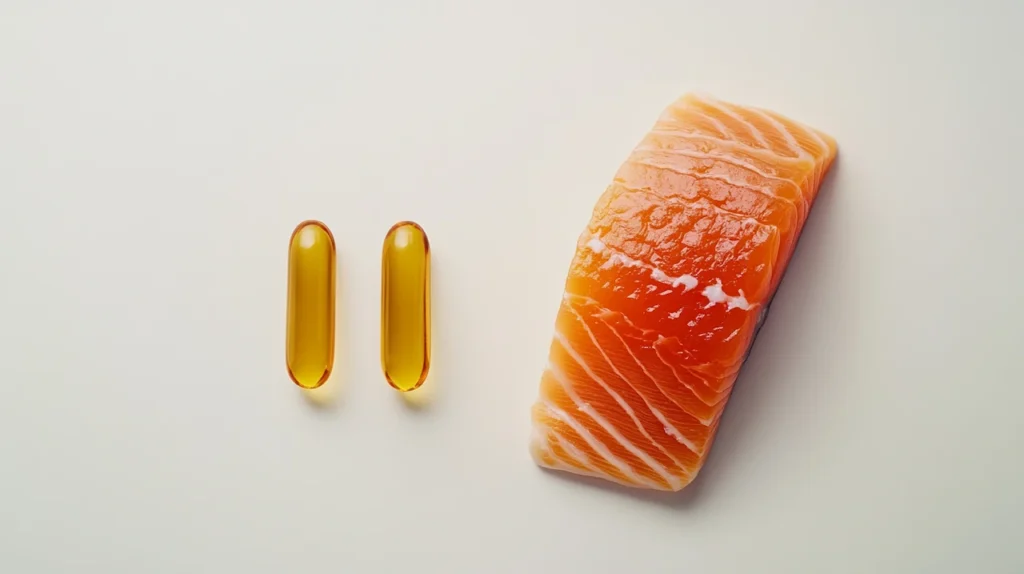Anúncio
Hormones orchestrate many vital processes in a man’s body. Testosterone often takes center stage, but a complex network of other hormones, such as DHEA, cortisol, and luteinizing hormone, work in tandem to maintain balance. One overlooked aspect of this symphony? Nutrients — the biochemical tools your body needs to perform hormonal functions effectively.
Anúncio
In the context of male health, hormonal equilibrium affects not just reproductive capabilities, but also mood, energy, cognitive clarity, and muscle maintenance. That’s why exploring nutritional strategies for hormonal optimization is not a fringe topic — it’s foundational to well-being.

Why Nutrients Matter for Hormonal Regulation
From enzymatic reactions to cellular signaling, nutrients serve as catalysts and protectors. Without adequate intake, your hormonal system may become sluggish or dysfunctional. Therefore, focusing on specific nutrients known to support endocrine health can naturally help optimize hormone levels and overall vitality.
Anúncio
It’s worth noting that while hormones are synthesized in glands, their precursors — including vitamins, amino acids, and minerals — come directly from food. In that sense, your dietary pattern becomes a tool to either nourish or neglect your internal balance.
Zinc: A Foundational Trace Mineral
Zinc supports the synthesis of testosterone and protects sperm cells from oxidative damage. Research links zinc deficiency with decreased testosterone and sexual health concerns. Moreover, zinc is involved in the production of luteinizing hormone, which sends signals to the testes to make more testosterone.
Interestingly, even mild zinc deficiencies may result in suboptimal hormonal function. In men with low zinc intake, restoring adequate levels has been associated with significant improvements in serum testosterone within weeks.
L-Citrulline and L-Arginine: Nitric Oxide Precursors
These amino acids play a key role in improving blood flow by increasing nitric oxide production. While not hormones themselves, L-Citrulline and L-Arginine may support erectile function — a sensitive indicator of hormonal health. Improved circulation may also enhance nutrient delivery to hormone-producing glands, supporting optimal function.
Some clinical trials have shown that combining these amino acids may offer enhanced vascular benefits, potentially improving not just sexual health, but also athletic performance and tissue oxygenation — all indirectly linked to hormonal vitality.
Maca Root: The Resilience Enhancer
Native to the Andes, maca root has been used traditionally to boost libido and stamina. Some studies suggest it may positively affect sperm quality and mood. While maca does not appear to directly raise testosterone levels, it may offer support for hormonal balance through adaptogenic and endocrine-modulating effects.
Modern research has confirmed some of these traditional claims, particularly its role in supporting mood and sexual desire. Interestingly, maca’s effects seem to stem from its ability to act on the hypothalamus and pituitary — the command centers of the endocrine system.
Acetyl-L-Carnitine: Mitochondrial Support for Testosterone
Acetyl-L-Carnitine is crucial for transporting fatty acids into mitochondria, where energy is generated. Testosterone production is an energy-intensive process, and this compound may offer indirect support. Furthermore, early evidence suggests it may enhance mood and cognitive function, both of which are influenced by hormonal health.
Additionally, Acetyl-L-Carnitine has shown potential in improving sperm motility and overall vitality in older men. Its dual role in mental clarity and cellular energy makes it a valuable ally in supporting male health from multiple angles.
Mucuna Pruriens: Dopaminergic Support and More
Mucuna pruriens is rich in L-DOPA, a precursor to dopamine — a neurotransmitter that influences the hypothalamic-pituitary-gonadal axis. Emerging evidence indicates it may support testosterone levels and improve sperm quality. It’s also noted for its adaptogenic effects, helping the body cope with stress, which can otherwise suppress hormone production.
Moreover, studies suggest that Mucuna may reduce cortisol levels and increase natural testosterone even under stressful conditions. This makes it particularly beneficial for men navigating modern stressors that typically impair endocrine function.
Vitamin B3 (Niacin): Vascular and Metabolic Support
Niacin contributes to energy metabolism and supports healthy blood flow. These effects can influence hormonal pathways indirectly. Some preliminary research suggests that by improving lipid metabolism and supporting vasodilation, niacin may play a small but meaningful role in male hormonal health.
Furthermore, niacin’s potential in improving HDL cholesterol and reducing systemic inflammation could create a more favorable internal environment for hormone production and regulation.
Other Nutrients Worth Noting
While the above nutrients form a core group, others show promise. Pycnogenol (pine bark extract) and grape seed extract both provide polyphenolic compounds that enhance endothelial function and antioxidant protection — beneficial for reproductive health. Saffron, meanwhile, is traditionally known for its aphrodisiac properties and has shown potential in improving mood and sexual function in men, although direct links to testosterone are still under investigation.
These additional compounds often work synergistically with foundational nutrients. For example, combining Pycnogenol with L-Arginine has shown superior results in supporting erectile health, hinting at layered benefits when strategically combined.
The Interplay Between Nutrients and Lifestyle
Nutrients alone rarely act in isolation. Their effects are most potent when combined with regular exercise, stress management, and consistent sleep. For example, even zinc supplementation may yield limited benefits if chronic stress or poor sleep are suppressing testosterone production at the neural level.
Moreover, lifestyle choices directly influence absorption and utilization of nutrients. A sedentary lifestyle, for instance, may reduce the body’s sensitivity to hormonal cues, rendering even an optimal nutrient profile less effective.
Science-Backed but Still Evolving
Some of the nutrients mentioned above, like zinc and vitamin B3, have strong scientific backing. Others, such as maca or Mucuna pruriens, are supported by promising but still-developing evidence. It’s important to acknowledge this nuance. These compounds may offer support, especially when part of a broader plan that includes dietary diversity, physical activity, and psychological well-being.
This ongoing research should inspire curiosity rather than caution. As more controlled trials emerge, we will better understand how these ingredients interact with hormonal pathways across diverse populations.
A Word on Supplementation vs. Food Sources
Whenever possible, nutrients should come from whole foods. Zinc can be found in shellfish, pumpkin seeds, and legumes. Niacin is rich in tuna, turkey, and brown rice. Amino acids like L-Citrulline and L-Arginine are present in watermelon and nuts. That said, therapeutic amounts sometimes require additional strategies — best managed with professional guidance.
Food-based approaches not only provide nutrients in their natural matrix but also reduce the risk of excessive intake. Still, targeted supplementation under medical guidance can bridge gaps and deliver measurable benefits when used wisely.

Tying It All Together: A Holistic Perspective
Hormonal health in men is dynamic and responsive. Rather than chasing a quick fix, the focus should be on building hormonal resilience — through smart nutrition, mindful living, and evidence-based choices. While no single nutrient can overhaul hormonal balance, each one plays a specific role in the orchestra of male vitality.
Ultimately, the best approach is a sustainable one — built on consistency, personalization, and a deep respect for how the body thrives when given the tools it needs.
This content is for informational purposes only and should not be used as a substitute for professional medical advice, diagnosis, or treatment. Always consult a healthcare provider before making changes to your diet or supplement regimen.
